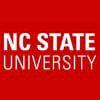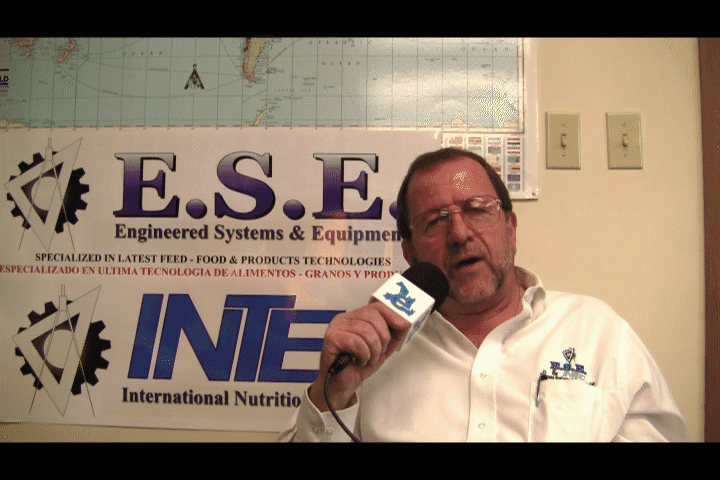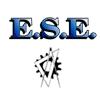Explore all the information on
Feed formulation
Welcome to the page about Feed formulation of Engormix; a source of knowledge on Feed formulation.
The rendering industry plays a critical role in supporting animal agriculture through sustainability, innovation and responsible resource use, yet its value is often underrecognized in broader food and feed discussions. The International Rendering Symposium,...
Comments : 0
Recommendations: 0
Justin Fowler, Professor at the University of Georgia, talked to us during IPPE 2017 in Atlanta, USA, and explained the process that inspired him to create FeedMix, an app for feed formulation, which is easy to use and helps producers to calculate requirements....
Comments : 21
Recommendations: 12
INTRODUCTION In the tropics, grasses are the main source of food for livestock; however, during the drought season, growth and quality of forages is low, affecting animals productivity. Therefore to evaluate alternatives for forage replacement during that period, turns necessary. Sugarcane is a crop produced in more than 100 countries worldwide, and its biomass production exceeds that of any other forage, making it a good animal feed strategy for sustainable agricultural...
Comments : 1
Recommendations: 0
Michael Joseph, Assistant Professor & Extension Specialist at NC State University, discusses the potential and caveats of using alternative protein sources in animal production during this Engormix interview. ...
Comments : 1
Recommendations: 0
Introduction Barley is one of the main cereals produced in Norway and is used in broiler feed in low amounts due to high content of non-starch polysaccharides (NSP) (Bedford 1995; Knudsen 2014; Svihus and Gullord 2002) and lower energy value compared to maize, wheat or sorghum (Choct and Annison 1990; Khalil et al. 2020). The NSP fractions comprising soluble βglucans and arabinoxylans have gel-forming characteristics and are known to increase intestinal viscosity (Choct 2006),...
Comments : 0
Recommendations: 0
Q: Can you tell us how you arrived at the proposed optimal ratios and amounts of true digestible AAs in diets that you have developed in your research? A: Results of studies by my group have established the concept that animals have dietary requirements for not only...
Comments : 5
Recommendations: 5
Global shrimp farming is a huge industry and a key protein source for people worldwide. But this industry is very vulnerable to disease outbreaks that severely hurt profits and stability. We know farmers can’t rely on antibiotics as much anymore because of resistance worries,...
Comments : 0
Recommendations: 1
Industry leaders discuss the rapid growth of food and feed production in the Middle East and the region’s increasing demand for efficient, sustainable technologies. Yucca schidigera–based solutions emerge as a natural tool to reduce ammonia, improve animal environments, and support cost-effective production across multiple species. ...
Comments : 0
Recommendations: 0
Mr. Josef Barbi, President at E.S.E. & INTEC, and Nakul Vakil (Cremach Private Limited), highlight the successful design, installation, and operation of a high-capacity shrimp feed plant in India. The partnership now expands toward engineering and manufacturing specialized process equipment for animal feed, biomass pelleting, and waste management across global markets. ...
Comments : 0
Recommendations: 0
Dr. Pradeep Krishnan, Regional Technical Director at Evonik Methionine SEA, points out how Evonik’s analytical services bring reliable data to every step of the feed value chain. ...
Comments : 0
Recommendations: 1
1. Introduction The gastrointestinal tract is a dynamic and complex environment that requires a correlation between the gut microbiota and the host for good functionality [1–3]. The composition of the gut microbiota changes throughout the life of the animal or due to various factors like the environment, behavior, and diets [4]. Studies indicate a strong correlation between intestinal diseases and the constitution of the microbiota [1,2]. A healthy gut is an essential...
Comments : 0
Recommendations: 0
I am developing an AI for bovine nutrition and I am looking for 3 people in the field to test it with real diets. It's free and I just want feedback. If you are interested in participating ? fill out the form here ?? https://forms.gle/HrovSfNEBZABzkhh9...
Comments : 0
Recommendations: 0
Respiratory diseases hurt swine operations on both the input and output side of the equation: feed costs rise as performance plummets. New research suggests that by using soybean meal, you can mitigate these challenges as a cost-effective tool for maintaining pig health and performance during outbreaks. Respiratory Diseases Present Challenges When pigs are infected with respiratory diseases such as swine respiratory disease (SRD) and porcine...
Comments : 1
Recommendations: 0
Michael Joseph, Assistant Professor & Extension Specialist at NC State University, explains how the food and feed industries are producing more with less, finding strategies to become more adaptable and efficient, in this Engormix interview. ...
Comments : 0
Recommendations: 0
Introduction Precision nutrition means diets are formulated as close as possible to requirements while avoiding any deficiency issues. Benefits of precision mineral nutrition can include reduced diet costs, reduced environmental impact, and reduced risk of toxicity. The major problem with precision mineral nutrition is increased risk of deficiency. Deficiency can be manifested as a clinical deficiency (e.g., grass tetany caused by inadequate magnesium), or as numerous subclinical...
Comments : 2
Recommendations: 3
Mohammad Afrouziyeh (University of Alberta) discusses Least Cost Feed formulation and Maximum Profit Feed formulation models, as well as the application of mathematical Linear Programming and Non Linear Programming models that are used in animal nutrition....
Comments : 19
Recommendations: 18
I. INTRODUCTION The laying hen has a considerable requirement for dietary calcium (Ca) and phosphorus (P) to support optimum egg production, egg quality and other physiological processes. In particular, a high intake of Ca ranging from 4 to 4.5% of the diet is considered important as the laying cycle progresses from early to late lay to achieve optimum egg number and egg shell quality. A capacity for birds to increase Ca intake from a separate Ca source as dietary Ca levels diminish...
Comments : 0
Recommendations: 0
A. ANIMAL FACTORS
B. PLANT FACTORS
C. PREPARATION OF FEED
A. ANIMAL FACTORS
1. Species
Roughages high in crude fibre are better digested by ruminants than by non-ruminants due to the pre-gastric fermentative digestion that occurs in the ruminants.
In several...
Comments : 11
Recommendations: 8
I. INTRODUCTION Necrotic enteritis (NE) is of great concern to the poultry industry due to its deteriorating impact on production and increasing mortality, resulting in a US$6 billion global economic loss (Wade and Keyburn, 2015). The causative agent of NE is Clostridium perfringens, a gram-positive spore-forming anaerobic bacterium. The subclinical form of NE is financially more devastating than the clinical form. This is due to a lack of obvious symptoms resulting in a delayed...
Comments : 0
Recommendations: 0
I. INTRODUCTION Protease enzymes can improve the dietary protein utilization. Therefore, it is possible to decrease the level of dietary protein to save on feed cost while maintaining performance, reduce nitrogen excretion in the environment, and minimize the risk of enteric infections. The objective of this study was to evaluate the effect of a protease on performance and intestinal health of broiler chickens fed a standard diet or a low-density diet. II. MATERIALS AND...
Comments : 0
Recommendations: 0






.jpg&w=3840&q=75)























